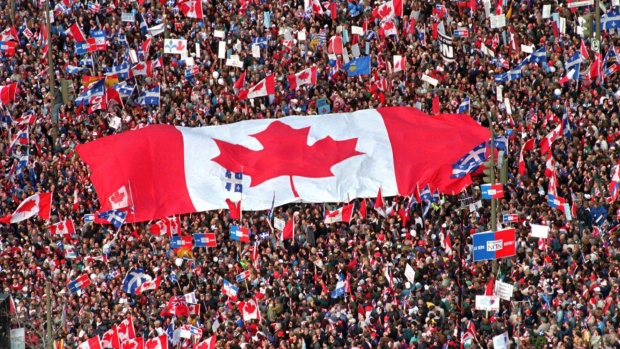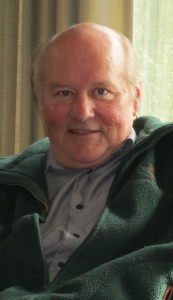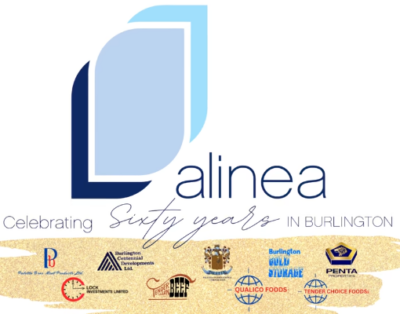February 27, 2014
BURLINGTON, ON.
“President Yanukovych has been made illegitimate. It’s very worrying, especially because Russia lost in hockey, they’ll be in a bad mood. We fear Russia’s involvement in Ukraine.”
Trudeau made himself a target for those questioning his maturity for the job of Prime Minister with this inappropriate comment and poor joke, given the tense situation in the Ukraine. Of course this is exactly what everyone is wondering – the ‘Russian bear in the room’– it’s the media has been discussing ever since the Ukraine went into crisis mode.
And not everyone was offended by the remark. For example, the Russian ambassador to Canada, Mr. Mamedov, during an interview told the media, “I’m turning serious, because I know you don’t appreciate jokes.” But Trudeau should not have linked Russian military action to the Olympic games – the games of peace. And Canada did make a spectacular showing at Sochi, ten golds including back-to-back hockey and curling.
A lot of money has been devoted to preparing athletes for the Olympics and it clearly has paid off. The Harper government has been throwing something like $150 million into the pot, Ontario another twenty million or so, and Quebec even more. Ontario had 63 Olympians competing, Alberta was right behind with 55,and B.C. fielded 30. But forty percent of all the athletes came from Quebec, prompting one news medium, reflecting on early returns (9 medals), to speculate that were Quebec a separate nation it would have placed third and the rest of Canada sixth.
The federal Liberal party held its biennial policy conference in Montreal last weekend and Justin Trudeau delivered an upbeat speech – including better jokes. One session involved the three eastern Liberal premiers and provincial party leaders from New Brunswick and Newfoundland. Kathleen Wynne spoke passionately and sincerely about the need for ‘nation-building’ by the federal government. She complained about the frustrations of trying to work with a senior level of government which refuses to consult the provinces and acts unilaterally on issues which affect them, including job training, health care, education, pensions and infrastructure.
Most impressive of the panelists was the fluently bi-lingual and articulate would-be premier from New Brunswick, Brian Gallant, as he switched between English and French with more ease than anyone I’ve ever witnessed before. I couldn’t help wondering how different things would be in this nation if we could all communicate like that. It was some 19 years ago when Quebecers came close to a ‘yes’ vote for sovereignty in that last referendum. And we know there is another one down the road, once Premier Marois wins the next provincial election this year.
I recall that last referendum. My daughter and a close friend skipped school to train down to Montreal and join the throngs pledging their love for Quebec as a part of Canada. I have rarely been more proud of her. And it was her and all the others across the country professing their love for the people of ‘la belle province’ that, I believe, convinced those last-minute Quebec voters to scratch their check marks for Canada, even as the Chretien government was sleep-walking through it all.

A massive Canadian flag was passed hand over hand amongst a huge crowd in Montreal days before the citizens of Quebec voted in their referendum to remain a part of Canada.
It was a race of Olympic proportions and Canada won by a squeaker – but the separatists demonstrated their competitive ability, not unlike Quebecers in the Olympics. Come the next referendum we can expect the separatists to be even more competitive. This will be a provincial government which has learned from two earlier failed attempts, and a federal administration which, like Chretien’s, doesn’t want or know how to get engaged.
René Lévesque had always planned to hold his 1980 referendum while Joe Clark, with only 4 seats was in power, but Trudeau the elder came back with majority support in Quebec and trounced him. One could surmise that Jean Chretien’s modest support in the province (about a quarter of the federal seats) contributed to the near loss by the forces of unity in 1995.
Pauline Marois would love to run her referendum while Mr. Harper is in power, given that he has no more political support in the province than Joe Clark did back then. If she waits until the election she might end up fighting the Quebec-popular NDP; still a federalist party though one promising an easy sovereignty exit with 50-plus-one percent ‘Yes; vote. The federalist Liberals appear strong in today’s polls but winning nationally, and winning in Quebec, is still a crap shoot at this point. Then there are the Tories, who might just get re-elected but are unlikely to improve their Quebec numbers.
Today, as we watch the Ukraine struggle with nation-building amidst threats of secession from minority regions it behooves us to contemplate how a successful ‘Yes’vote on sovereignty would play out back here. It is true that Quebec is a net recipient of equalization and some other economic benefits for being part of Canada. However, we should remember that the financially crippled Ukrainian people rejected the huge Russian multimillion dollar bailout, and expect a similar response from Quebec.
It will be instructive to watch how Scotland votes on its independence referendum this coming June. The pundits are betting the Scots will vote ‘No’, but then this is only their first referendum.

Is this the kiss goodbye from a Quebecers or just a happy Olympian who happens to be from Quebec? Charle Cournoyer of Canada celebrating his Bronze medal win in the men’s 500 metre short track speed skating event on February 22, 2014 at the Sochi Winter Olympics.
Quebecers are a passionate lot, something they clearly demonstrated at Sochi, even under the Canada banner. The next referendum will not be played out on the pocket books of Quebecers, it will be won by what is in their hearts. A dis-interested, almost hostile, federal government is exactly what the separatists are hoping for – and that is what they are getting.
 Ray Rivers writes weekly on both federal and provincial politics, applying his more than 25 years as a federal bureaucrat to his thinking. Rivers was a candidate for provincial office in Burlington where he ran against Cam Jackson in 1995, the year Mike Harris and the Common Sense Revolution swept the province. He developed the current policy process for the Ontario Liberal Party.
Ray Rivers writes weekly on both federal and provincial politics, applying his more than 25 years as a federal bureaucrat to his thinking. Rivers was a candidate for provincial office in Burlington where he ran against Cam Jackson in 1995, the year Mike Harris and the Common Sense Revolution swept the province. He developed the current policy process for the Ontario Liberal Party.
Additional information links:
Reaction Russian Worries Apology Sochi Olympics Own the Podium Quebec Athletes
Early Medals Trudeau Speech in Montreal Quebec Anglophones Liberal Premiers




















The justifiable causes of the rebellion against the forceful measures of russification undertaken over the past 300 years in the Ukraine will somehow need to be resolved. We all hope that neither civil war nor Russian invasion occurs. Sadly, we can have no moral direction from the U.S.A. who has either invaded (Cuba, Dominican Republic, Grenada, Panama, Haiti)or directly interfered (Ecuador, Brazil, Bolivia, El Salvador, Honduras, Guatemala, Nicaragua, Uruguay, Chile) in the domestic affairs of other proximal nations since 1961.
In Canada we have only to look at the Durham Report which also suggested similar attempts of assimilation. Fortunately for us all, they failed.
The spectres today preaching assimilation are the multinational corporations (or as Eisenhower in 1961 called them: the military industrial complex) which may yet be a greater threat than any the world has ever seen.
Yes. Let us have another federal government to engage Quebec with Adsca II, that should hold the line. Where is Chretien when you really need him?
The Ukraine is nearly the complete opposite of Quebec. The Russified eastern half wants to cozy up to Russia. It would be as if the Anglophones in Quebec wanted to hold a referendum to separate from the French. Actually, that is not a bad idea, come to think of it.
I am sure Mr. Rivers is right that there will be Quebecers who will vote yes for emotional reasons, but I suspect there are enough sane and thinking people in Quebec who would not allow themselves to get carried away and whose votes would cancel out the others.
It is fine to talk about how much Quebec spent on the Olympics, but it would be a little more honest if you separated out of that expenditure the money that province had available to it from the RoC under so-called “equalization” payments, which helped to finance Quebec athletes, IN ADDITION to direct federal funding.
Ray, You are helping divisiveness in our country by pointing out the number of medals won by Quebec. Why not also point out the number of medals won by Ontario and each of the other provinces. I fail to see any value in further stacking the provinces against each other. The Olympics were for Canada, not each province.